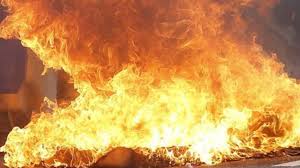Introduction:
In today’s challenging economic climate, where inflation and financial strain are prevalent, protecting your property from unforeseen disasters like fire has never been more critical. The rising costs of rebuilding and repairing damaged property can add a significant burden, making fire insurance not just a choice but a necessity. Despite its importance, many people are still unclear about the specifics of fire insurance. This guide aims to address common questions and clarify key aspects of fire insurance thereby helping you make well-informed decisions to ensure your property is adequately protected.
1. What is Fire Insurance?
Fire insurance is a form of property insurance designed to compensate for losses and damages to property resulting from fires. It offers financial security to homeowners, business owners, and property holders against fire-induced incidents.
2. Who needs Fire Insurance?
Fire insurance is advisable for anyone who owns or rents property, including residential homes, commercial buildings, or industrial facilities. It is particularly important for businesses with valuable machinery, inventory, and assets.
3. Does Fire Insurance cover uninhabited or vacant buildings?
Fire insurance policies usually don’t cover vacant or uninhabited buildings by default due to the higher risk of fire damage. Insurers may reduce coverage or impose extra conditions if a property remains uninhabited for a long time, as the chances of undetected damage, vandalism, or fire are greater. Nonetheless, you can secure coverage for such buildings by informing your insurer and possibly pay an additional premium. It is important to notify your insurance company if your property is going to be vacant for an extended time to ensure claim validity in case of a fire.
4. What does Fire Insurance generally cover?
Typically, fire insurance encompasses the direct damage inflicted by fires, including harm to the building’s structure and its contents. It may also cover losses from smoke, water, or firefighting actions towards extinguishing the fire.
5. What does Fire Insurance not cover?
Generally, fire insurance does not cover damage resulting from wars, nuclear hazards, pollution, or the intentional acts of the policyholder, like arson. Certain natural disasters, such as earthquakes, are also not covered unless they are explicitly added via an endorsement.
6. How is the premium for Fire Insurance calculated?
The premium is determined by factors such as the property’s value, the building’s construction materials, existing fire safety measures, location, the nature of the business or activities conducted there, and the cover limits.
7. Is it possible to insure my parents’ assets against fire?
Yes, you can insure your parents’ assets against fire if you have an insurable interest in the property. Insurable interest means that the person taking out the insurance must have a legitimate financial interest or stand to be at risk of financial loss if the property is damaged or destroyed. This principle is to ensure that the policyholder has a financial connection to the insured property.
8. Which fire safety measures do underwriters consider, and how do they affect the premium?
Underwriters evaluate fire safety measures such as fire alarms, smoke detectors, sprinkler systems, fire extinguishers, proper electrical wiring, and the property’s proximity to firefighting services. Properties with these safety features are considered lower risk, potentially leading to lower premiums. The more effective the fire prevention and protection systems are, the greater the likelihood of receiving a discount on your Fire Insurance premium.
9. What does reinstatement value mean in Fire Insurance, and why is it significant?
Reinstatement value is the cost to replace or repair the property to its pre-fire condition without deducting for depreciation. Fire insurance policies that cover reinstatement value provide full compensation for repair or replacement costs, unlike other insurance policy types that may only cover the current market or depreciated value. This coverage ensures complete financial recovery without being burdened with additional costs due to depreciation.
10. What is the “average clause” in Fire Insurance, and how does it affect both the insurer and the insured?
The “average clause” in Fire Insurance ensures fair claim compensation. If the insured amount is below the property’s actual value, the insurer pays a claim that is proportional to the under-insurance level. This clause prevents insurer overpayment and encourages insureds to cover the property for full value, avoiding significant financial loss during claims.
11. How do I file a claim under Fire Insurance?
To file a Fire Insurance claim, immediately inform your insurer, provide evidence of a fire, submit a loss estimate, and assist the loss adjuster in damage assessment.
12. Can I increase my coverage amount within an ongoing insurance period?
Yes, You can increase your coverage amount during an ongoing insurance period by informing your insurer and paying the additional premium.
13. Does fire insurance cover loss of income?
Fire insurance typically does not include loss of income coverage. Instead, “Business Interruption Insurance” or “Loss of Income Insurance” is specifically designed to address this need. This type of policy provides compensation for income lost if business operations are disrupted due to fire damage, thereby ensuring revenue continuity while the property undergoes repairs or reconstruction.
14. Is fire insurance mandatory?
Fire insurance is not usually mandated by law; however, mortgage lenders, landlords, and banks may require it as a condition for loans or leases. Although not legally obligatory, it is highly advisable for property owners to mitigate potential financial loss from fire damage, which can be substantial, particularly with inflation and escalating construction costs.
15. What is the role of a fire insurance underwriter?
A fire insurance underwriter assesses the risks of insuring a property against fire. They set the insurance premium and policy terms to protect the insurance company from excessive and preventable losses.
16. How does inflation affect my fire insurance coverage?
Inflation can greatly increase the costs of rebuilding or repairing your property after a fire due to the rising prices of construction materials and labour. If your fire insurance policy does not consider inflation, you risk being underinsured. Some policies include “inflation protection” or “index-linked” clauses that automatically adjust coverage in line with inflation rates. However, this additional protection might come with an extra premium, so it’s crucial to discuss this with your insurer to maintain adequate coverage for future costs.
17. Can a fire insurance policy cover multiple properties under a single policy?
Yes, it is possible to structure a fire insurance policy to cover multiple properties under one policy. Each property’s risk exposures and premiums will be assessed individually.
18. How long does Fire Insurance coverage last?
Fire Insurance coverage typically lasts for one year and is renewable annually. It is also possible to arrange short-term policies for specific durations based on the agreement with the insurer.
19. What factors should I consider when choosing an insurer for Fire Insurance?
In choosing an insurer for Fire Insurance, consider their financial stability, which reflects their claim-paying capacity. Investigate their customer service reputation and efficiency in handling claims. Examine their policy options to ensure they offer comprehensive coverage, policy customization, and clear policy terms and conditions.
20. How do I determine an insurer’s claims handling efficiency?
To determine an insurer’s efficiency in handling claims, examine their history of claim settlements, focusing on the speed, fairness, and simplicity of the process. Look at customer reviews, solicit recommendations, and consult industry ratings to gauge their track record. A reliable insurer will have a history of resolving claims swiftly, equitably, and without complications.
Closing:
Now that you’ve gained a deeper understanding of how fire insurance works, I urge you to take a moment to review your current fire policy and ensure it meets your needs. Don’t wait until it’s too late. Reach out to your insurer today to make sure you’re fully protected.
Please stay tuned for my next post, where I’ll dive into the world of insurance broking. Discover how a skilled broker can help you navigate complex insurance decisions and secure the best coverage for your unique situation. If you want to stay informed and make smarter insurance choices, you won’t want to miss it!



This is so engaging and enlightening
Thanks Folusho. Glad you are enlightened. I appreciate your time.
This is illuminating. Keep it up Folake.
Thanks Ore for the encouragement. God bless you.